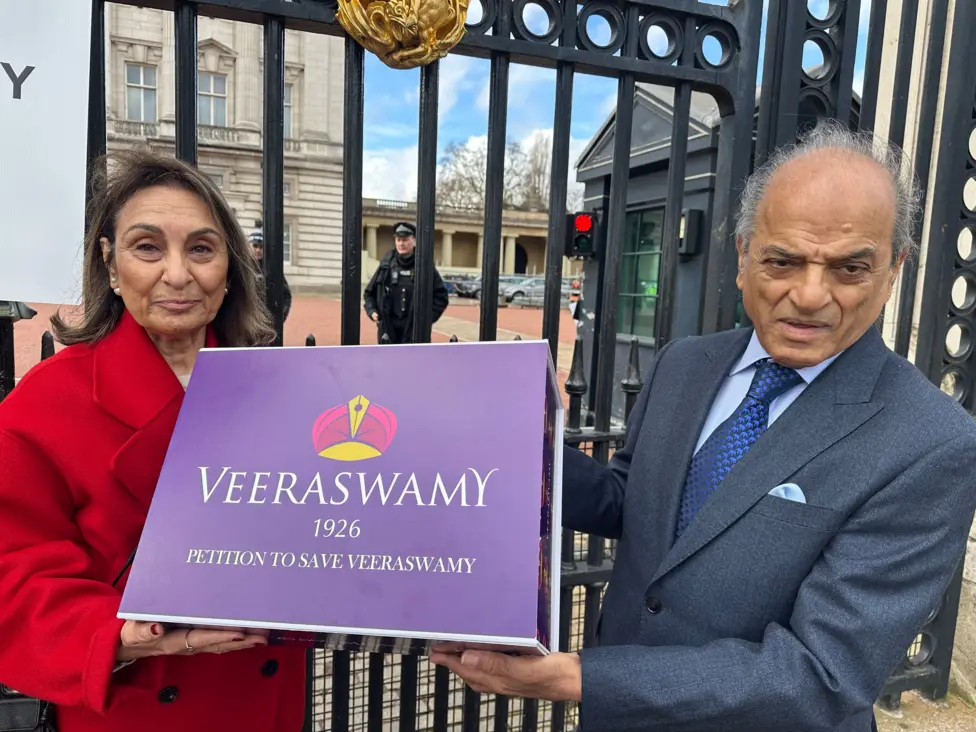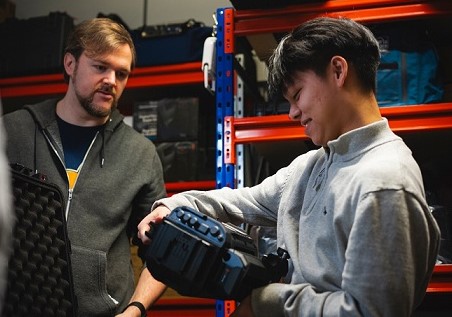2nd Annual Arabtech event shows real potential of UK cooperation to promote prosperity in the Middle East As negativity dominates the news, the UK-Israel Tech Hub at the British Embassy in Tel Aviv run the 2nd Annual Arabtech Conference in London bringing 10 of the most promising Israeli-Arab start ups to the Silycon Roundabout. The UK-Israel Tech Hub was launched in 2011 to create partnerships in which British companies gain a global competitive edge via Israeli innovation and Israeli innovation can go global via the UK. Over the past four years the hub has nurtured some 80 innovation partnerships between companies from Israel and Britain - 29 have already been concluded with a value of over 60 million pounds.
Sajid Javid MP addressing the UK-Israel Tech Hub at Wayra, London on 2nd December 2015:
"It’s great to see so many people here and the most exciting part of the day is not going to be me, it’s going to be the presentations that you are here to see. But I did want to say a bit about our commitment and I’ll start by saying this – when I was a kid, when I was growing up and my parents wanted to punish me sometimes and they’d say: right that’s it you’re not going to allowed to play cricket anymore and now that I’ve got kids of my own my way of punishing them if they are naughty which does happen now and again is I change the Wi-Fi password. I feel that’s a very simple way to illustrate what the different digital revolution really is and how it’s changed the world forever and continues to do so.
It’s an incredible age with incredible opportunities. Opportunities for innovators for investors, for employers and employees. The ICT industry in the UK contributes some hundred billion pounds to the GDP at the moment and you won’t be surprised to hear therefore that’s why the UK government stands completely behind it. We try to support everyone from start-ups to innovators to entrepreneurs to established companies and we want to see the UK as Europe’s go-to destination. Now in a minute I’ll talk about what we’re doing at home, here in Britain, to make that a reality but of course today is about the Middle East. It’s no secret; as we just heard that Israel is something of an IT prodigy despite there being quotas of 8 million people. That’s about the size of Greater London. Israel boasts more active tech start-ups than any other country outside of the United States. In fact, the high tech sector in Israel accounts for almost half of all Israel exports which in itself is an outstanding figure. If the UK is going to thrive as a digital centre and become one of the best it has to work with the best in the world, and that of course includes working with Israel. And that’s why we set up the UK-Israel Tech Hub at the British Embassy in Tel Aviv.
It was launched in 2011 and there was an agreement by the Israeli Prime Minister Benjamin Netanyahu and David Cameron at the time and it had one aim in mind; to create partnerships in which British companies gain a global competitive edge via Israeli innovation and for Israeli innovation to go global via the UK. Now over the past four years the hub has nurtured some 80 innovation partnerships between companies from Israel and Britain. 29 have already been concluded with a value of over 60 million pounds. The Hub is helping for example, RBS to work strategically with 7 Israeli start-ups on their innovation needs. It’s opened the doors for Teva Pharmaceuticals to announce an 11 million pound investment in clinical research here in the UK. And it has proven these opportunities are instrumental in getting British publishers, for example, to create new opportunities by partnering with Israeli innovators in EdTech and in PadTec.
The team in Tel Aviv have also contributed to what I think is a significant perception change for Israeli tech companies. So 85% of them now list the UK as their number one European destination. Now the Hub is taking things to the next level and working with innovators across all Israel’s communities. There is incredible potential in the Arab-Israeli community and there’s no shortage of ideas and insight that you’ll see here in a moment. Start-ups traditionally rely on networks, they rely on good connections to expand at home and internationally and the situation in Israel sometimes does make it difficult for those Arab start-ups to get access to those connections. We don’t want to see any of that potential going to waste so the Hub has been working with Arab-Israeli start-ups to develop their links here and encourage them to set the UK as their destination to grow and to expand globally. And it’s starting to pay off. The Hub has already facilitated four partnerships between UK publishers and Arab-Israel innovators. Digital Arabic content start-ups from Israel are helping British publishers expand their reach in the 11 billion pounds a year Arabic market. Now later you’ll be hearing from 10 more Arab-Israeli start-ups. If you want an insight into the depths of the Arab Israeli tech talent pool just consider this, the team in Tel Aviv could have filled the places on this trip four times over. They had to turn down applications for literally dozens of innovators that wanted to come and pitch to you all today.
I urge you all to get out there and make the more of the incredible potential that exists in the Arab-Israeli community. Because it there’s one thing I’ve learnt from my career it’s that capitalism is columbine. It doesn’t matter where you’ve come from or what your background is or what religion you follow or what you language is, all that matters is do you feel whether it can turn your great idea into a consumer product that can be enjoyed by thousands, or millions or sometimes even billions of people. And our matchmaking efforts aren’t limited to just start-ups. We have the UK-Israel size selection of fellowships which provide opportunities for early career scientists as well as senior, in the UK and Israel.
Here in the UK we are creating an environment that supports fast high tech fast-growing Hub. We are growing, we are doing this because we understand that in the 21st century business models and industries are fundamentally changing in the internet age start-ups can reach global markets almost immediately and make use of the technology to scale their business in ways that were never formerly conceived as possible. The global economy is increasingly being shaped by a new --- of fast rate funds. In 1950, the average lifespan of an SNP 500 company was 47 years. By 2020 is would have fallen to just 10 years. It’s predicted that two thirds of businesses that make up the SNP 500 in 10 years will be companies that don’t even exist today. Now we understand the shift here in Britain and we’re doing everything we can to translate that insight into concrete policies and action. So take for example a look at TechCity, our start-up cluster in East London. This government doesn’t believe that you can just click your fingers and create the technology cluster in some kind-of top-down way.
Wherever possible our approach is go with the grain of what is already happening and help the good things to expand in growth. So, when local entrepreneurs started saying to us ‘there’s something really special happening here in East London but we need the government to shine a light on the costa and bring the new investment to the idea’. So we responded to that request and in November 2010 TechCity was born. 5 years on, it’s helped bring companies like Amazon, CISCO, Intel, Microsoft and Google to the area, supporting the innovation eco-system and bringing new jobs in East London. We’ve created the world’s first entrepreneur visas to make it as easy as possible for entrepreneurs from outside the EU to come to the TechCity and start-up their businesses. And we have created new research in the TechCity such as a global data institute which is chaired by Sir Tim Burners-Lee and a smart ---- city’s lab funded by Intel and jointly run by UCL and Imperial College London. So let me illustrate the impact of all this hard work with one single statistic. When we launched TechCity in 2010 there were around 200 digital and technology companies in Israel. Today there are more than 3000. It’s not the UK’s TechHub, its Europe’s TechHub. Governments for across the world are now following our lead. A couple of years ago Germany launched its own TechCity initiative in Berlin. Now we’re always talking about how we can learn lessons from the Germans when it comes to those ecurrent models, here’s an example of them pinching something from us. We’ve also opened a new digital Capel centre in Kings Cross, it brings together academics, entrepreneurs and tests the best ideas from concept to commercialisation. We are supporting growing businesses in other ways too. For example we abolished stamp duty on the alternative investment market, that’s the stock market for small shares which makes it easier to trade them, cheaper and creates a more liquid market. Of course, we are trying our best to deliver a secure growing business friendly-economy in which start-ups can thrive. We are cutting red-tape, we are cutting incorporating tax, we are making it easier for you to invest.
So we are supporting our new Tech start-ups here at home, and we are working to attract new start-ups from around the world. Today we will see these two streams come together. Unfortunately I won’t be able to stay for all these.
I can’t stay for all the presentations but I know that the TechHub has brought together some of the very best in Israeli-Arab, Arab-Israeli investors. So what we are seeing here today, we have brought together some of those two streams; we’ve got investors and we’ve got some of the very best opportunities from the Arab-Israeli tech centre. And so I think this afternoon is a unique opportunity because you never know, in a few years’ time, it might be one of the apps that you see and hear today that I will ban my children from seeing."
















